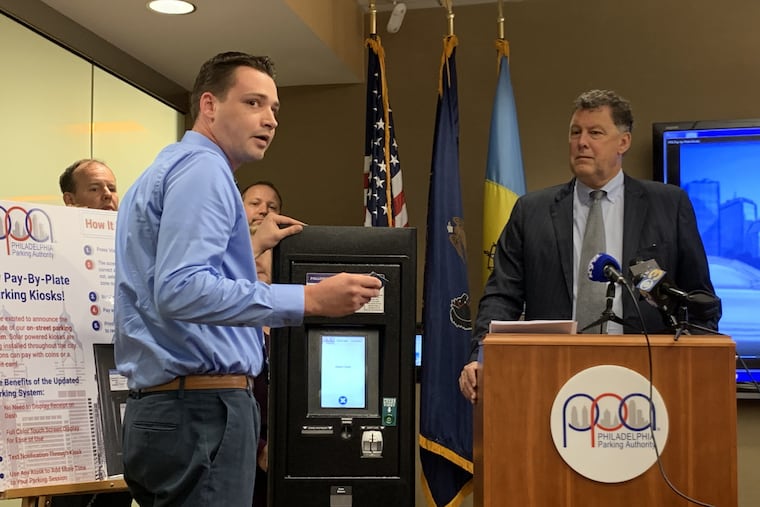Philly’s new parking kiosks ditch dashboard-displayed receipts
The new parking kiosks will charge people via license plate.

Parking in Philadelphia will no longer require drivers to insert a slip of paper on their dashboard to prove they paid for parking. They will, however, have to memorize their license plate numbers.
“As we begin installing our new pay-by-plate kiosks, we’ll also be changing behavior, and we need the public’s cooperation,” said Scott Petri, the Philadelphia Parking Authority’s chief executive. “The key to this cooperation is: Remember your license plate.”
The PPA made a $10 million investment in 1,600 new parking kiosks from Flowbird Urban Intelligence, a French parking technology company. The solar-powered machines will be paid for with off-street parking revenue, Petri said.
The new machines will replace the 1,110 existing parking kiosks, which are about 10 years old, and the 8,416 remaining single-space, coin-operated meters in Philadelphia. Some of those have components that date to the 1960s.
The first of the new kiosks will be installed next week, and the process of replacing the existing kiosks throughout Center City and University City will last through March. The new kiosks will be fully installed by the end of June, officials said.
The new machines have a touch screen that will ask drivers to enter their license plate number. Users can still pay with coins or cards, but not cash. Instead of giving them a slip of paper to put in their windshield, the machines will log the plate number and the amount of time a person wishes to park. Ticketers will use handheld scanners to read vehicles’ license plates and receive information about whether they are parked legally or not.
Users of the systems can pay for their parking space at any machine in the city as long as they know their license plate and the number of the zone they are parked in. The PPA’s MeterUp app will continue to work.
“It’s the finest technology available,” Petri said.
The systems being installed are similar to those used in Chicago, Pittsburgh, Paris, and Barcelona, said William Johannsen, a Flowbird project manager.